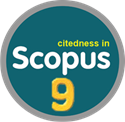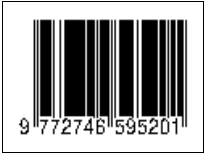About the Journal
Focus and Scope
Public Management and Accounting Review (PMAR) is an interactive forum linking the academic world and practice in accounting and public management. PMAR holds a wide range of critical thoughts and ideas as well as empirical studies on public management and accounting. The study area includes:
- organizational governance,
- organizational for non-profit entities,
- public management and information,
- public accounting,
- public accounting information system and technology,
- public auditing, and
- performance measurement in public and non-profit organizations.
- Public Policy
Publication Frequency
Public Management and Accounting Review (PMAR) is published two times a year.
PMAR accepts papers in English and Bahasa Indonesia.
Publication Ethics
PMAR refers to the Committee on Publication Ethics (COPE). The COPE website provides details of guidelines and international standards.
Plagiarism
Before going through the review process and publishing, all manuscripts will be checked that they are free from plagiarism by using Turnitin. If there are indications of plagiarism of more than 50%, the manuscript will instantly be rejected. If there is an indication of plagiarism between 30% - 50%, we will send the manuscript back to the author to be revised for the plagiarised content.
Pee Review
Review Policy
All submitted manuscripts are read by the editorial staff. Manuscripts that editors evaluate as inappropriate to journal criteria are promptly rejected without external review. Manuscripts evaluated as potentially interesting to our readership are sent to double-blind reviewers. Based on the reviewer’s recommendation, the editors then decide from among several possibilities: rejected, require major revision, need minor revision, or accepted.
The Editor-in-Chief has the right to decide which manuscripts submitted to the journal should be published.
Review Process
All articles submitted to CSWR will be reviewed using a blind review method. Reviewers are unaware of the identity of the authors, and authors are also unaware of the identity of reviewers (double-blind review method). In general, each article will be reviewed by one to two reviewers.
The response of the reviewers will be the basis for the Editor to conclude
1. Revisions Required
2. Accept Submission
3. Decline Submission
An article was rejected for publication due to various considerations, including:
1. The article does not fit the scope
2. The article does not follow the rules of writing scientific papers / does not follow the author's guidelines
3. The fundamental methodological errors
4. The author refuses to make suggestions for improvements provided by the reviewer without a logical basis.
5. There are indications of plagiarism of more than 30%
Standard Review Process
Reviewers must enter the journal website to agree to the review, download submissions, submit their comments, and select a recommendation.
Reviewer Options
- Review Time
The typical period of time allowed 4 weeks for reviews
Note: This can be modified during the editorial process.
- Reviewer Access
Reviewers will only have access to the submission file after agreeing to review it.
- Reviewer Guidelines
The Reviewer Guidelines will provide reviewers with criteria for judging a submission's suitability for publication in the journal. They can include any special instructions for preparing an effective and helpful review. In conducting the review, reviewers are presented with two open text boxes, the first "for author and editor" and the second "for the editor." Alternatively, the Journal Manager can create a peer review form under Review Forms. In all cases, editors will have the option of including the reviews in correspondence with the author.
Article template
Since 2024, the article template has changed for better copy editing.
Open Access Policy
This journal provides immediate open access to its content on the principle that making research freely available to the public supports a greater global exchange of knowledge.
Privacy Statement
The names and email addresses entered in this journal site will be used exclusively for the stated purposes of this journal and will not be made available for any other purpose or to any other party.

This Journal is under a Creative Commons Attribution 4.0 International License













